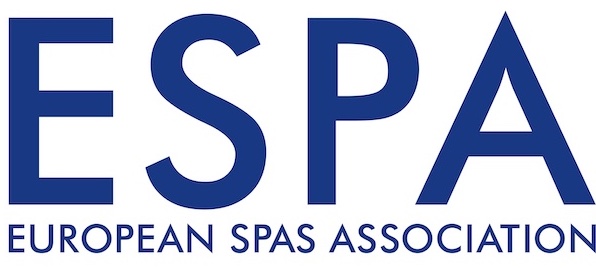On October 21, the fifth meeting of experts from the ESPA Thalasso Working Group took place with 19 participants. Among them was the new ESPA President, Dr. Siyka Katsarova, who joined us from Brussels, where she attended a tourism event to emphasise the role of the healthcare sector and European spas.
“This Thalasso Working Group is a benchmark for health and wellness innovation. Because we need data to underline the key role they have as facilitators.”
Dr. Siyka Katsarova, ESPA President
And we had plenty of data during this online meeting, thanks to our engaging speakers!
Marketing Marine Minerals
Speaker: Dr. Marcus Wengel (Prof. Dr. Biener GmbH, Saxony, Germany)
Dr. Wengel shared his expertise on minerals in the ocean that can be beneficial for human health. Seawater contains over 70 different minerals. Some of these dissolved inorganic salts are known to have positive effects on human health and are used in medical wellness products.
The best scientific knowledge currently exists for magnesium ions and their behaviour in the skin. Treatments such as balneophototherapy make use of this knowledge for treating skin irritations.
The mineral lithium—commonly used in high concentrations as a therapeutic drug—has proven to be beneficial in low concentrations for people living in areas with little sunlight. Bathing in lithium-enriched water can improve mood and reduce stress.
Selenium is a powerful antioxidant, often called the anti-ageing mineral, as it helps protect cells.
“All these minerals can have new applications in medical wellness. We must show them to our guests—let them feel, see, and smell. Lithium or calcium will cause a warm feeling when added to water, while potassium can be used in a refreshing peeling treatment because it stimulates the skin’s cold sensors. Show what is in the sea and underline the uniqueness of these minerals. It is old knowledge that we must bring to people in a modern way. They want to understand why these minerals and trace elements are important for their bodies—they want to be healthy and feel exclusive. This is a small but important part of the Thalasso universe.”
More information: www.prof-dr-biener-salze.com
Tailor-Made Treatments
Speaker: Claudia Wagner (Fit Reisen, Germany)
Claudia Wagner illustrated how the ancient Thalasso remedy has evolved into modern, tailor-made health cures using natural resources from the sea.
Since the 1980s, Fit Reisen has been creating and promoting healthy holiday experiences—ranging from holistic and natural healing retreats to health spa hotels that integrate the latest advances in modern spa medicine and medical wellness.
The global wellness economy reached a value of $6.3 trillion in 2023, making it larger than the sports and pharmaceutical industries. With an annual growth rate of 6.8%, it is an impressive market. The average spending per guest is €1,700, with an average stay of 12.5 days, and 85% of guests are repeat customers.
As a best practice, she presented the Oceano Health Spa Hotel in Tenerife, featuring both indoor and outdoor seawater pools directly connected to the ocean.
The treatment, as we know it today, was introduced in 1730 by an English doctor, and it continues to evolve to meet new and strong market demands. Guests now seek premium quality, personalised treatments, and authentic experiences focused on prevention, fitness, and a healthy lifestyle.
This evolution requires the integration of digital health tools, mental wellbeing, and holistic approaches. For evidence-based programs, people are willing to spend more. Today, the effects of Thalasso treatments on skin conditions, rheumatism, diabetes, and respiratory diseases are clinically proven.
More information: oceano.de/en/health-spa-hotel-tenerife-health-beauty-wellness-by-the-sea/spa-menu
Doctor’s Prescription: A Walk by the Coast
Speaker: Silke Lambert (Blue Growth Research Lab, Ghent University, Belgium)
Silke Lambert, a young researcher at the Blue Growth Research Lab, investigates how exposure to coastal environments supports physiological health. Traditionally, a stay at the sea was considered healthy because of the high iodine concentration in the air, but today different hypotheses exist.
One theory suggests that a thin layer at the sea’s surface is enriched with bioactive molecules. When waves break, underwater bubbles capture these molecules and burst, releasing sea spray aerosols into the air, which we can inhale.
To analyse their health benefits, these aerosols are captured in liquid and on filters. In the laboratory, they are added to human cell lines to study effects on organs such as the lungs and kidneys.
The Blue Growth team now aims to extend these laboratory experiments to studies involving human participants. Volunteers provide nasal swab and blood droplet samples. Two groups are being compared: one living at the Belgian coast and another living inland.
“We keep investigating,” said Lambert, “and maybe, one day, doctors will prescribe a walk by the coast.”
Thalasso News
- From 24–26 September, the German Thalasso Congress was held in Carolinensiel. ESPA was represented by Marlies Sobczak, leader of the ESPA Thalasso Working Group. The congress was an initiative of DHV Lower Saxony, and an important topic was the Thalasso criteria.
- From 8–10 October, the European Spas and Balneology Congress took place in Haapsalu, Estonia.
- ESPA (The European Spas Association) published a special edition of Health, Quality and Spas magazine on the occasion of its 30th anniversary, featuring the article “Thalasso: Wellbeing by the Waves – Europe’s Thalasso Vision.”
- The Thalasso Working Group is active on social media, including LinkedIn and Facebook.
- Our members Dr. M. Lourdes Mourelle (University of Vigo, Spain) and Haresh S. Kalasariya (INTI International University, Malaysia) published the book “Thalassotherapy and Cosmeceuticals”, available online: europeanspas.eu/new-book-thalassotherapy-and-cosmeceuticals

